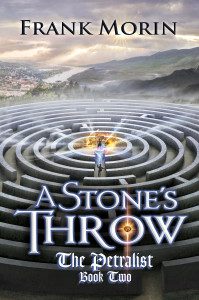Big grants, small grants, grants for individuals or groups, writing, editing, professional development, retreats, workshops, literary festivals, delivery of and promotional activities – there are many grants writers can access. Applications for writing grants may not appear as formal as for other granting projects but the principles are the same. The following points will help you navigate through ambiguous jargon such as provide a summary of your creative purpose for using this grant, and how you will use these funds to assist in this process.
1) Follow the guidelines exactly. You can’t make the program fit you – you have to fit the program and that’s where the work in writing the grant comes. Never be creative on the format, too wordy, general, or too familiar. It’s a formal document and, like with editors and publishers, being silly or sloppy or not professional is reason for a rejection.
2) Answer only what is asked for. For example, the proposal may ask for your resume or your organization’s history. Focus only on that. This is not the section to talk about the problem and your solution to it, or how, in doing this project, you or the community will benefit. In the history/resume section, the funder is looking for experience, reputation, if your mission aligns with the funder’s values. So as an artist or writer, what have you done and accomplished that makes you a worthwhile candidate?
3) Current programs and activities. Focus only on what you’re currently doing. They want to know what you’re doing on a daily basis, the operational information that is relevant to the project you’re proposing. They want to know if you have the capacity to follow through on the grant monies. Don’t list programs/projects that aren’t current, weren’t successful, have no relevance or received negative reviews.
4) Target groups. If you must define your target groups, always be specific, never general and use charts and graphs if you can. If the funder targets a specific group, it’s because they’ve already determined there is a need and will know if you haven’t done your homework. As a writer, you may need to say what age group you’re writing for, what makes it unique from the current offering and if it’s for promotional purposes, what schools you’re targeting, age groups, etc.
4) Partners. A funder looks for the impact of individual and collaborative efforts, representation of the target population, and monetary or in-kind contributions. These are your partners. As part of a community group, your partners are obvious. As an individual, your partnerships are less obvious. Do you belong to writers’ groups? Is there any benefit that you can extend to them by what you’re doing, or that you can teach? You may not have project partners per se, but partnerships can be informal, in-kind like partnering with schools, book stores and writing groups as part of a promotional plan. Fatal flaws: non-existent partners, no letter of support from the partners, overstating a partner’s role.
5) Project description. A project goal is what you’ll finish between the start and end dates, and this may not be a product finished in its entirety. Objectives are the milestones that allow you to achieve the goal and form the program design.
A project description can be as tricky as a query letter. Not only must you describe planned activities with timelines and expected results/benefits, you must be concise yet speak to who you are as an artist. What are you aiming to achieve? What is your artistic process? How will this grant benefit you as an artist?
You may wish to start with a summary (a short paragraph) which addresses who you are as an artist, what you’re planning to do, why you want to do it, how much funding you’re seeking.
Be clear, detailed, yet precise. Ensure that your goals and objectives are realistic. For example, if you’re applying for a marketing grant, you’ll need to discuss the target audience, specific media and promotional strategies to reach that audience, if it involves travel (dates, location, promotional plans for those appearances,).
6) Expected results and benefits. For some granting agencies, this is where you set the scene by giving a brief profile of yourself to provide a paragraph resume about yourself to set the context of the application. This may include whether you are emerging or professional, which includes a brief synopsis of what you’ve done to date. What about you will give this project a reasonable chance of success and, how will it enable you to develop your craft or skills? Note: you may still be required to provide a more detailed resume.
7) The budget. Some funders give a small sum for development and don’t require a line by line account. But if they require line by line items, you must be able to explain and justify every item. Make sure every line item matches the objectives and meets the guidelines. For example, if travel is required, research airline, hotel and meal costs. If there are costs to research in a specific archive or museum, include them.
8) Support materials. Here, you sell yourself through the eyes of others. Supporting materials are memorandums of understanding from partners or collaborators, letters from experts in your field who can vouch for you and your work, or other materials such as scripts or story boards.
9) Other key points:
- Project Start date – in some cases, activities can’t begin before the application is submitted.
- Make sure you meet basic program eligibility guidelines such as geography/residency, discipline, target population (emerging, professional).
- Allow yourself enough time to research and prepare your application.
- Granting agencies may have consultants or they may give you examples of successful applications. Use them!
- Jurors have limited time, so be as succinct as possible and follow the guidelines for the required information which includes formatting and number of copies.
- Get a PROOF READER! Whether it is a spelling or grammatical error, an unclear statement, any minor thing alleviated is one less reason to deny the application. Questions a proof reader should ask (a juror will): Is the purpose clear? Is it clear how the money will be spent and is it concisely stated? Do the goals provide a solution for the needs presented? Are the goals and objectives realistic? Are the objectives measurable?
Grants can be a big boon to your writing time and career. They are a lot of work to do well, but the rewards are well worth it.
 Today I’m celebrating the launch of A Stone’s Throw, the sequel to my popular YA fantasy novel, Set in Stone!
Today I’m celebrating the launch of A Stone’s Throw, the sequel to my popular YA fantasy novel, Set in Stone! Frank Morin loves good stories in every form. When not writing or trying to keep up with his active family, he’s often found hiking, camping, Scuba diving, or enjoying other outdoor activities. For updates on upcoming releases of his popular Petralist YA fantasy novels, or his fast-paced Facetakers alternate history fantasy series, check his website: www.frankmorin.org
Frank Morin loves good stories in every form. When not writing or trying to keep up with his active family, he’s often found hiking, camping, Scuba diving, or enjoying other outdoor activities. For updates on upcoming releases of his popular Petralist YA fantasy novels, or his fast-paced Facetakers alternate history fantasy series, check his website: www.frankmorin.org
 Evan Braun is an author and editor who has been writing books for more than ten years. He is the author of The Watchers Chronicle, whose third volume, The Law of Radiance, was released earlier this year. In addition to specializing in both hard and soft science fiction, he is the managing editor of The Niverville Citizen. He lives in Niverville, Manitoba.
Evan Braun is an author and editor who has been writing books for more than ten years. He is the author of The Watchers Chronicle, whose third volume, The Law of Radiance, was released earlier this year. In addition to specializing in both hard and soft science fiction, he is the managing editor of The Niverville Citizen. He lives in Niverville, Manitoba.
